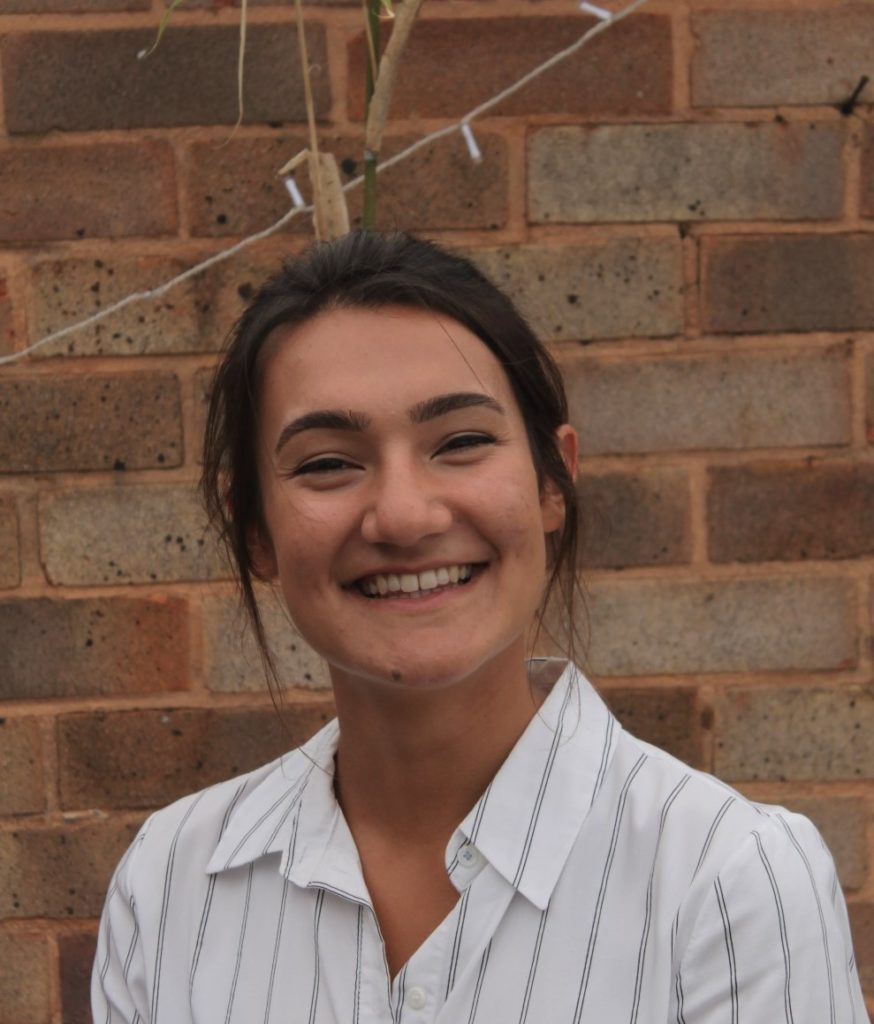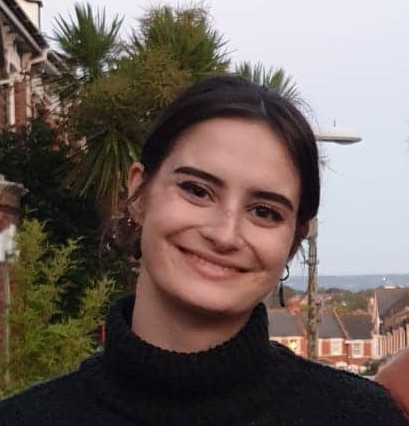Tools for Schools
Tools for Schools
Dr Abby Russell (University of Exeter)
Abby is a Senior Lecturer in Child and Adolescent Mental Health based within the ChYMe Group, that sits within the Department of Public Health and Sports Sciences, in the University of Exeter Medical School. Her research focusses on the causes and consequences of child and adolescent mental health difficulties, and the role that schools play in preventing, identifying and managing mental health difficulties.
She has experience of a variety of research methods, including epidemiological, qualitative and evidence synthesis. Abby has recently completed a postdoctoral position with Dr Becky Mars at the University of Bristol, exploring biological mechanisms linking early adversity and adolescent self-harm, and exploring the genetics of self-harm and suicide. Her PhD explored the association between parental socioeconomic disadvantage and ADHD in children and young people.
Prior to her research career, Abby has worked in learning disability support services, child and adolescent mental health services, and a school for children with special educational needs.

Suzie Holt
Suzie is a Graduate Research Assistant for the Tools for Schools project, working within the ChYMe Children and Young People’s Mental Health research collaborations at the University of Exeter. Suzie joined the project in 2022, having previously worked in a variety of mental health, school and nursery settings. Prior to joining the team, she was a Children’s Wellbeing Practitioner at CAMHS and also worked in the paediatric psychology team in North Devon. Suzie has worked on a number of research trials and completed her MSc in Psychological Research Methods at the University of Exeter. She has two teenage children and lives in North Devon.

Dr Darren Moore (University of Exeter)
Darren is a Senior Lecturer at the Graduate School of Education. His research interests focus broadly on school mental health, spanning social, emotional and mental health as a special educational need, the impact of mental ill health on school attendance and outcomes, how schools can identify and treat mental health difficulties, teacher’s mental health and wellbeing and how schools enact mental health and wellbeing policy and practice. He is also interested in educational transitions, parental engagement in learning, behaviour in school, clinical education, reflective practice and the involvement of practitioners in generating and prioritising research ideas

Professor Barney Dunn (University of Exeter)
Barney is a Professor in the Psychology department and is a chartered clinical psychologist. Barneys clinical interests currently focus primarily on developing ways of working with anhedonia in depression. He is also broadly interested in treating emotion and interpersonal difficulties in clients with depression and personality disorders, using a mixture of cognitive behavioural therapy (CBT), cognitive analytic therapy (CAT), and dialectical behaviour therapy (DBT), and novel adaptations of mindfulness approaches for treatment resistant depression and to promote workplace wellbeing.
At the Mood Disorders Centre, he is the co-lead for the AccEPT clinic (an NHS commissioned service providing treatment for mood disorders). He contributes to teaching on clinical psychology at undergraduate and postgraduate levels within Exeter and provide training workshops nationally and internationally. He also served as the faculty representative to the Lived Experience Group (service users who consult on our research and governance and assist with our training) until Spring 2018. Barney is increasingly interested in workplace wellbeing and mental health support and serve as academic advisor to the university around workplace wellbeing and give regular workshops on promoting a positive working environment.

Professor Tamsin Ford (University of Cambridge)
Tamsin Ford is Professor of Child and Adolescent Psychiatry in the Department of Psychiatry at the University of Cambridge. She is an internationally renowned Child Psychiatric Epidemiologist who researches the organisation, delivery, and effectiveness of services and interventions for children and young people’s mental health.
Her work focuses on how to promote mental health, prevent mental ill-health and respond effectively to children and young people who are currently struggling. Tamsin’s research covers the full range of psychopathology and agencies, practitioners and interventions that relate to the mental health of children and young people. Every interaction with a child presents an opportunity to intervene to improve their developmental trajectory. Her work has direct relevance to policy, commissioning and practice.

Dr Rachel Hayes (University of Exeter)
Rachel is a Senior Research Fellow in the ChYMe Group at Exeter. She is interested in finding ways to support the emotional and social development of children and young adults. Her focus has been evaluating complex interventions with families, schools and health services.
I am a professional author with the organisation MindEd who provide free educational resources on children and young people’s mental health for any adult who works with them, for example, parents, teachers, therapists. I regularly work with the Education Endowment Foundation (EEF) who are an independent charity dedicated to breaking the link between family income and educational achievement. I am also a research advisor for Place2Be and was delighted to be invited to be a judge on the Place2Be Wellbeing in Schools Awards 2019.

Professor Edmund Sonuga-Barke (King’s College London)
Edmund Sonuga-Barke is Professor of Developmental Psychology, Psychiatry and Neuroscience at the Institute of Psychiatry, Psychology and Neuroscience, King’s College London. He was appointed to KCL in January 2017, following 19 years as Professor in the School of Psychology, University of Southampton.
His research focuses on understanding neurodevelopmental disorders and mental health conditions across the life span. To this end, he employs basic developmental science approaches to study the pathogenesis of such conditions, their underlying genetic and environmental risk and resilience sources and their mediating brain mechanisms.

Dr Judi Kidger (University of Bristol)
Judi Kidger is a lecturer in Public Health at Bristol Medical School. Her research has focused on young people’s mental health and self-harm behaviour and school based mental health interventions. Judi recently led a school-based cluster randomised controlled trial (the WISE study), evaluating an intervention to improve secondary school teachers’ mental health and their skills in supporting students.
She is primarily funded by the NIHR’s School for Public Health Research. Within the School Judi is co-lead of the Public Mental Health Programme, and she is leading work packages examining ways in which school organisational structures, policies and processes can impact mental health positively or negatively. She is also leading two public health practice evaluations, one to evaluate the Mental Health Foundation’s Peer Education Project and the other working in partnership with South Gloucestershire public health team to evaluate the added benefit of linking a talking therapies service with wider

Professor Linda Pfiffner (University of California, San Francisco)
Linda Pfiffner is a Professor in Residence and Director of the Hyperactivity, Attention and Learning Problems (HALP) Program in the Department of Psychiatry and is a licensed Clinical Psychologist. Her program of research centers on the development and evaluation of collaborative school-home psychosocial treatments for school-aged children with ADHD, the inattentive presentation of ADHD, and family/social factors in developmental models of ADHD and related problems. For the past 25 years her research has been supported by multiple grants from NIMH and the Institute of Education Sciences (IES), US Department of Education.
She developed the Child Life and Attention Skills (CLAS) Program, an integrated multi-component behavioural intervention for children with ADHD-Inattentive Presentation. The program was awarded Innovative Program of the Year in 2004 by CHADD. She and her team adapted the program for youth with attention and behavioural concerns, developing the Collaborative Life Skills Program (CLS) for delivery by school-based mental health professionals in school settings. She is currently developing a web-based, remote training program for school mental health providers in implementation of CLS with funding from IES.

Dr Kate Langley (Cardiff University)
Kate Langley is a Senior Lecturer in the Department of Psychology at Cardiff University. Her research focuses on risk factors for mental health problems in childhood, specifically Attention Deficit Hyperactivity Disorder (ADHD), Conduct Disorder and co-occurring problems (such as Autism Spectrum Disorders). She is also interested in how the presentation of these problems changes with age and how different risk factors are associated with the developmental course of disorder.
Kate Langley currently teaches on Developmental Psychology within the 2nd Year Undergraduate programme, and on the MSc in Children’s Psychological Disorders. In addition she is module coordinator for the modules Neurodevelopmental Disorders 1: Neurobiology.

Becky Gudka (University of Exeter)
Becky is a current Undergraduate student at the University of Exeter studying BSc Medical Sciences (Health Research). She is currently undertaking her Professional Training Year as a Research Assistant within the Children and Young People’s Mental Health Research Collaboration (ChYMe), primarily working on the Tools for Schools project.
Becky will be working on the 5-year Tools for Schools project working with a planning group of people with ADHD as well as school staff and parents to investigate effective interventions for children with ADHD. Becky also works on other projects around child and adolescent mental health, such as investigating the impact of Parental Minds, a support group for parents of children with mental health conditions. Throughout her BSc, Becky has focused on health research and research ethics and has previous experience working as an intern at the MetOffice.

Eleanor Bryant (University of Exeter)
Eleanor is a current Undergraduate student at the University of Exeter studying BSc Neuroscience. She has a background of interest in neurodevelopmental disorders and education, and is carr ying out the third year of her degree completing a Professional Training Year within the Children and Young People’s Mental Health Research Collaboration (ChYMe).
She is mainly involved with the 5-year Tools for Schools project working with a planning group of people with ADHD as well as school staff and parents to investigate effective interventions for children with ADHD. This will contribute to the production of a toolkit of behavioural strategies that teachers can use to help in teaching their students with ADHD.
